#Nels Cline
Text
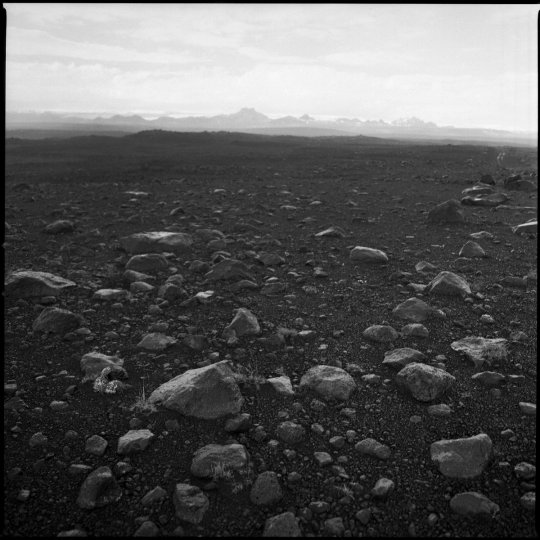
Wadada Leo Smith and Orange Wave Electric, Fire Illuminations, KB112, Kabell Records, 2023
Featuring: Nels Cline, Brandon Ross, Lamar Smith, Bill Laswell, Melvin Gibbs, Hardedge, Pheeroan akLaff and Mauro Refosco.
Cover Art: Einar Falur Ingólfsson
#graphic design#art#music#music album#photography#cover#wadada leo smith#orange wave electric#nels cline#brandon ross#lamar smith#bill laswell#melvin gibbs#hardedge#pheeroan aklaff#mauro refosco#einar falur ingólfsson#kabell records#2020s
22 notes
·
View notes
Text
youtube
Los Lobos Surprise - Really - with “La Bamba” at Newport
- Nels Cline and John McCauley Give Band a Five-guitar Front Line on Bluesy Rendition
That Los Lobos concluded their Newport Folk Festival set with “La Bamba” is no surprise.
But the howling version the Wolves played was a shocker.
Augmented by Wilco’s Nels Cline and Deer Tick’s John McCauley, Lobos sported a five-guitar front line and put it to good use with a half-speed, blues-infused rendition of their famous Ritchie Valens cover.
The audience-shot video sounds pretty crummy. But it nevertheless crackles with electricity as Cline strangles his axe, coaxing otherworldly colors over David Hidalgo’s drawn-out vocal delivery.
Lobos have played “La Bamba” at most of the 24 gigs Sound Bites has attended. But none of them sounded like this one, which jettisoned the oft-inserted “Good Lovin’” interlude but retained the grimy outro that was recently appended to the track.
Muy bueno.
8/2/23
#Youtube#los lobos#la bamba#nels cline#wilco#john mccauley#deer tick#ritchie valens#david hidalgo#louie pérez#cesar rosas#conrad lozano#steve berlin
6 notes
·
View notes
Text
Happy birthday Nels Cline
2 notes
·
View notes
Text

Happy Birthday, Nels Cline
📷: Tony Vasquez
2 notes
·
View notes
Text
Exploring the Musical Mastery of Ralph Towner
Introduction:
Ralph Towner is a name synonymous with innovation and virtuosity in the world of contemporary jazz and classical guitar. Born eighty-four years ago today on March 1, 1940, in Chehalis, Washington, Towner’s musical journey began at a young age. His unique approach to composition and improvisation, coupled with his mastery of the 12-string guitar, has made him a revered figure among…

View On WordPress
#Bill Evans#Bill Frisell#Collin Walcott#Consort#Glen Moore#Homer Keller#Jazz Guitarists#Jazz History#Karl Scheit#Nels Cline#Oregon#Pat Metheny#Paul McCandless#Paul Winter#Ralph Towner#Solstice
1 note
·
View note
Photo

It's time for Beginnings, the podcast where writer and performer Andy Beckerman talks to the comedians, writers, filmmakers and musicians he admires about their earliest creative experiences and the numerous ways in which a creative life can unfold.
On today's episode, I talk to musician and composer Zeena Parkins. Originally from Detroit, Michigan, Zeena is a pioneer of contemporary harp practices and has essentially "reinvented the harp". Since moving to New York in 1984, Zeena has collaborated with countless musical luminaries like John Zorn, Ikue Mori, Elliott Sharp and Bjork, recorded over a dozen fantastic albums and collected more accolades than you could count in a week, including a Guggenheim Fellowship. For 13 years, Zeena held the prestigious Darius Milhaud Chair in Composition at Mills College, and at the end of June, her latest album of compositions LACE will be released on Chaikin Records!
I'm on Twitter here and you can get the show with:
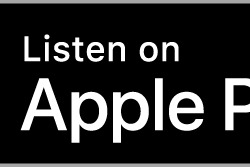

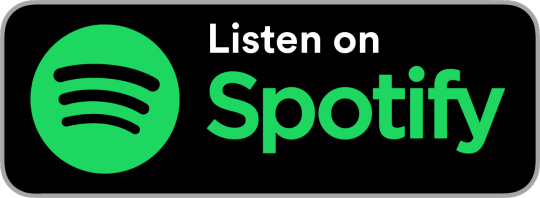


Permalink
RSS Feed
Facebook
3 notes
·
View notes
Text
Seven Limbs ~ how a Brooklyn-based composer is using art as an offering
By Clare Morin
There are moments in our meditation practice where we get a glimpse of our mind’s potential. Our otherwise incessant mental chatter ceases for a while and we meet our capacity for radiant, soaring peace. We meet our Buddha nature.
There is a moment in Brooklyn-based composer Douglas J. Cuomo’s recent album and performance project, Seven Limbs, that captures this moment of radiant…

View On WordPress
#Aizuri Quartet#Clare Morin#Douglas J. Cuomo#Kadampa Buddhism#Nels Cline#preparing for meditation#seven limbs#Sharon Guskin
2 notes
·
View notes
Text
Q&A: Nels Cline for Creative Loafing Tampa Bay
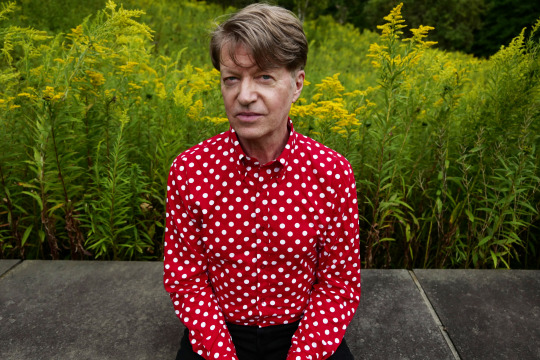
I just got done transcribing a Nels Cline interview I did on Friday, Feb. 24, 2023 ahead of Wilco’s April 20, 2023 stop in Clearwater, Florida. I hope to turn it into a 1,500-word featured before the printer comes calling, but wanted to get the Q&A down somewhere.
If you get sick of talking to me just let me know.
Ask me a question and watch an hour go by, so beware.
You need that space. Your whole thing is taking space and creating texture and all that stuff, so I'm not surprised that you can talk for an hour.
Right on.
And I might bounce around a little bit, too. It was funny trying to come up with questions for this because they're all very guitar centric, and it's such a testament to the career you've built and identity that you've built. You know what I mean?
Sort of. I didn't think about the identity much. I'm not really aware of it, actually. But I know I feel respected. And that's nice.
Yeah, for sure. I think you're beyond respected, obviously. We'll just get right into it. Wilco is on a tour, right, and essentially, that's why we're talking—although I'm talking to Nels Cline.
Yeah, we're coming to Florida.
And we won't get too political here because I think you've already made your views on that clear, and I know you don't see Cruel Country as a political thing. But I wanted to ask you: You're coming up on your 20 year Wilco-versary.
It'll be 19 next month.
Right. So 2024 marks two decades in this band. And I know when you joined, Jeff was going through what he was going through.
Yeah.
He got through it, and it's been a really productive few years. But I think, and correct me if I'm wrong, when you joined, you didn't necessarily want to bring your personality as a jazzer or soundscape kind of guy to the band. But that kind of happened. And there's this part about the Wilco songbook that kind of brought out that 14 year old fan of the Byrds and Buffalo Springfield, right?
Yep.
So thinking about that 14 year old that was brought out when you join the band, that 14 year old would be 33 or 34 now. I know Jeff has encouraged you to not be so reverent, maybe, to the songs that he brings to the table...
Yeah the one predictable thing about Wilco recording is that it's not going to be predictable.
Right. But when you look back on the last few decades of Wilco, look back to that 14 year old who was reawakened. Can you talk about how that person has grown over the last 20 years with just being in this band—that guitar player?
I was playing rock and roll settings prior to joining Wilco, along with the other improvised music and whatever else music that I've been doing. I guess that 14 year old is 33, you say now, he just still loves to rock. The feeling of the rock band, and at this point, the pageantry of it, like I don't really know about the show aspect of it, I'm comfortable with—but I don't see it really. I'm not seeing all these design things and all these changes that are happening that are supposed to be enhancing the product. So the 14 year old never cared about that so much and still doesn't, but the rocking is great.
OK. I think it’s Jeff that tells you, "Just shred, man."
That was what he said to me when I asked him what he wanted me to do at the end of "Art of Almost." He said, "just shred."
youtube
That's awesome. OK, cool. I love hearing your stories about all the rock you love—and I want to ask you a little bit about that—but I wanted to stay in Wilco world for a little bit, and kind of bring some reader questions that were presented to me. There's this jam on "Many Worlds" that feels like this high point in the Wilco canon as far as guitar and you're place in it and stuff like that. Obviously, fans are obsessed with some of the older stuff, and there's a solo on "Ashes Of American Flags," and obviously, the many think pieces on "Impossible Germany." But as far as solo on "Ashes," would you consider that the pinnacle of your fretwork achievements?
No, I mean, I don't even think about music that way. Whatever my pinnacle achievement is, I probably didn't notice it. But it was my idea to do that coda at the end of "Ashes" in my early days in the ensemble, and it turned into a big guitar solo thing, which I was probably encouraged to do. But I don't think about pinnacles. I do so much music, and a lot of it is Wilco, and I'm just trying my best.
OK. That's cool. I think what it is, is that a lot of people, guitar players specifically, they want to be you. You know?
Oh my god.
I know you don't want to hear that.
I'll say this. I'm a very fortunate human. It's OK to want to have a fortunate, nice, decent way of life. And I have that. You know, it's pretty cool. And I get to play and travel and do all the stuff that people do. I don't really care much for airplane stuff and airports, but that's part of the job.
This is kind of a watered down version of a follow up to that. Talking about the people that obsess over your work, is there a solo out there that you are still working to decode or one you hold in mythical, kind of air?
Oh my god. It might take me a minute to think of specific solos. But I mean, I could just think of hundreds, thousands of them.
What about one that you can't decode? Like one that bothers you.
By decode, you mean like, comprehend?
Or even, like, put your hands on your guitar and feel like you could kind of visit or touch it, you know?
Well, there's a lot of solos that have influenced me if that's relevant in terms of not just one thing. So I could feel very close to that soloist and possibly do some sort of emulation. But that's usually, for me, more in the rock or blues world because so much of the intricacies and nuances of so-called jazz elude me. I'm no jazz expert, but I do love the music, so I try to play it sometimes. But if I heard somebody I felt really close to do something that I felt a very personal connection to, I might be able to, you know, pick up some of that stuff. But I don't think that answers your question.
I mean it's all in context, right? You hit it right in the beginning—we're just trying to understand each other more.
Right.
Do you sit down to practice solos?
I don't practice solos. I don't think I ever learned anyone else's solo. There's certain solos that I can play by ear because they're so kind of memorable, or I can get close to them: Jimi Hendrix, or Dickey [Betts] or Duane [Allman]. I was never in cover bands, and bar bands, and things like that. So I'm not one of these guys that just says, "Hey, which Rush epic do you wanna do today?" or, "We know all of them!"
And you hate to sight read, right?
Well, it's not that I hate to do it. I'm terrible at it. I have a mental block about it. It's awful. If somebody wants to write a bunch of intricately-notated, dense music and put it in front of me, I can guarantee that they won't hear any of their music played by me. If I have a recording of it, then I can take the music home, and I'll do everything I can to learn a piece. That's how I do it.
OK. And this leads to my other question, because I think it's part of the core of who you are. I think we view you as an emotional player and sometimes an emotional composer. And emotion sometimes comes from melody, or for Western listeners there's harmonic information and modal elements, too. So this kind of piggybacks on what I asked you earlier, and you kind of mentioned it when you're talking about jazz. Are there still emotions, or modes or harmonies that you still hope to unlock from the guitar?
Absolutely. Yeah, I think sometimes the way I get around is when I'm just messing around, because I've actually been able to live, in the last year, someplace where I can—if I want to—I can play through an amplifier and not bother anybody. I didn't plug in and practice for I don't know how long—at least 30 years, hardly ever. Just to test the pedal or something, maybe. But it's been rather revealing about certain things. One of the things has to do with experimenting with different pedals, which I never allowed myself to do before except maybe on the gig. I just didn't sit around for hours working stuff out. I just got a little setup, and I just mess around.
One of the things I like to do is open tune the guitar and just start playing. That's a pleasing sound to me. It also means that I can use a lot of open strings, and everything's ringing. And it's kind of my own personal methodology that is from an extension of a trio that I had for a while in Los Angeles—three acoustic guitar players—that's how we started improvising. We would make up a tuning before every improvisation and then just start. It's fun, and it takes me sort of out of the patterns and habits and crutches—and it's pleasing to my ears. Does that even answer your question?
I think it does. And it might not have been a fair question because how can you know what emotion you're trying to unlock if you haven't felt it yet?
Well, I mean, OK, speaking to emotion. I do have a near consistent reaction to certain sonorities. And I guess what I was trying to get at by telling you about messing around with tunings, is something I do with a harmonizer pedal—a really shitty one—where I can just detune the guitar by hitting the pedal and play chord clusters. That's fun. But in terms of the emotion, sometimes that detuned sound for example, if as harsh and abrasive as possible, can be a very strong emotion. Just as a perfectly voiced major minor ninth chord, can just send me. I do experience emotion in a non-theoretical way, but unfortunately, I've also thought about the theoretical way, which sometimes can be, you know, a bit of a cage I guess.
I was gonna call it a jail cell, but "cage" works.
Here's something I can toss at you that has nothing to do with anything you're asking me but kind of covers almost everything.
youtube
OK.
David Crosby. So David Crosby died, as we all know, The Byrds were extremely important to me, I even saw them with David Crosby as my first big rock concert in Central Park, 1967. When he died, I immediately wanted to listen to two songs: "Déjà Vu" from the album Déjà Vu, not some sort of live version. And "Guinnevere" from the Crosby, Stills & Nash record, which in my view is very Croz.
These made me realize upon listening to them that I wanted to go back to The Byrds songs that he had the most to do with—he actually had everything to with. When I did that, I listened to "Everybody's Been Burned " from Younger Than Yesterday. I'm assuming that "I See You" is the Croz, but I could be wrong. Anyway, I started listening to these pieces of music and realized that a huge part of my so-called jazz harmonic language that I'm drawn to, I may have first heard when I was listening to The Byrds when I was 10, 11 years old. And I've heard so much of my own happiness. There's so much harmonic interest and and it's so gorgeous to my ears. And then his voice is incredible. So I realized like, "Holy shit," I think that David Crosby may be very, very responsible for my earliest leanings, in terms of harmonic information, particularly, but also in the case of a song like “Déjà Vu,” it's episodic. It starts with his that super brisk and amazing vocal harmonic thing, the goes into the down, sort of Crazy Horse kind of tempo that we all love to play over for the rest of the song—it's amazing harmonies, it's just so great. And I really respond to that.
The same way I respond to hearing Tom Verlaine [Television], now the late Tom Verlaine, and all the things that I basically remember, so many of his solos. I can probably sing almost all of them along with records, maybe—after Flash Light I lost the thread a bit. So these languages, what I'm trying to say—they live. And at the same time, I'll just mention something that I first encountered when I was 10 that had a huge impact on me. My twin brother Alex's band was The Rolling Stones, so basically, it was Byrds and Stones until maybe '67, or late-'66 for us.
Definitely not the Beatles, because only girls like The Beatles, you know?
Exactly. That's why we didn't like them until we saw "Help!," and then we loved them.
You couldn't help it. I liked that you mentioned Croz because I had a question about Croz in the context of your love for The Byrds. I know you never wanted to be this amp-humping shaman, you know, but "Manic Depression" was kind of an inception point for you. Then Miss Godwin plays Ravi Shankar for you, and you get to drone. Then I started thinking about Croz, and Jimi, and Ravi and then also I started thinking about Tom and your wiggle, right. You kind of answered it a little bit, but I wondered how deaths of musicians affect you because when a musician dies, it's a little bit different than somebody else in our life since musicians have such this body of work that you can revisit. It sounds like when Croz died, it triggered all these memories for you.
It started with Jeff Beck. Jeff Beck was a big shock. I think to everyone, Jeff Beck just seemed like he was gonna live forever. He always had this a bit of a larger than life quality, and at the same time obviously really kind of a humble dude, because the musical path that he chose is just what he wanted to do and not rock and roll stardom. But his language that you've developed on a guitar had become so personal, and so at times, utterly profound, and always entertaining and expressive as fuck.
So it started with Beck, then David Crosby dies. And by this time most people are probably thinking like, "Oh, who's the third?" or, “Croz made it to 81, that's awesome.” And a lot of people thought he was a jerk. Then two, three days later, people started writing about David Crosby a bit, and talking about it, so I was very happy because I had gone into a David zone for a while there.
Tom Verlaine was the crushing blow, and also totally unexpected. I didn't know anything about what was going on with his health and stuff. Basically, as I tried to process this, I can tell you that as the senior in the band Wilco, the cold tap of death finger on the backline edges is not infrequent. So, I'm just going to try to stay positive, and and stay alive. It's sobering is what I'm saying. Maybe it's a little different than some musicians I don't know. I have an emotional reaction sometimes. And other times I just go, "Yeah, we're all gonna die."
This is what happens. We're looking at two generations of old people dying because that's what they do. They're very noticeable old people because their media figures, they're celebrities or notable in some way that we read about these other people. So that's what's happening. We're just watching them go, many of them in their 80s and 90s, but a lot in the 70s, and even in the 60s—my age. So it's sobering.
The Tom and the Croz thing definitely sent me into a bit of a nostalgia haze there for a while. I'm still not out of the Tom Verlaine one. It's an ongoing thing. His songs have been parading in my head for days and days and days, like two weeks. Then I just had to start reinvestigating. I hadn't heard Cover or Flash Light in a long time. Anyway, that's a whole other story. It's hard. It's really hard, but it's going to just keep happening. I could have said that in one sentence and saved you five minutes.
youtube
Dude, people don't want you to tell them something in one sentence. I think that's why they listen to your music, right? Like they want to sit down.
Oh god. All my records under my own name are pretty damn long.
Yeah, but that's why people come to them.
I hope so because I can't seem to self-edit to save my life. Whatever.
That's why you're in a band with Jeff. That's why you have strong band leaders like Jeff. They'll edit you in that realm.
Yeah, Jeff's a strong bandleader. He's a smart dude, too. He's just amazing.
I'm actually going to miss the show here because I'll be in Monterey with my wife who's running a marathon.
Whoa.
So I'm pretty bummed because I haven't seen Wilco since the Bob Dylan tour with My Morning Jacket. I've seen Jeff a couple of times since. This is probably too much information, but I know exactly when my son was conceived because it was after a solo show from Jeff. And I blame Jeff.
Oh that is too much information.
My whole review that night was about this woman in front of me who was holding her son, and about Jeff's music and how warm and familial it can be sometimes. I was mad at people for hushing people. I was like, "Gosh, everything we have is in our arms," you know? Anyway that's too much information. So you mentioned Déjà Vu and going back to Croz and feeling these things that you felt when you were 10. I'm thinking of "Manic Depression" and that kind of innocence or nativite. It sounds like you get to tap into that 10 year old person and be innocent when you listen to music quite frequently.
I can kind of feel it almost anywhere except for maybe in a straight ahead jazz setting, which I don't do anyway. But if I'm just improvising in pure sound world, or playing some of my friends' music and we get into a thing—I particularly like improvising. We can, you know, honor—I don't even know how to say this, I'm sorry I lost the thread there, I immediately started thinking about something else...
It's OK. We're talking about how sometimes you're in a strange jazz setting which you don't really do and you're improvising and there's this pure sound and, or maybe you're playing with some friends...
Put it this way. Here's another example—a succinct example. I like soundchecks, like on tour with Wilco. As soon as sound starts and everybody starts playing, I'm in a very happy place. Especially when there's no bullshit and it's just functional—not coldly efficient, but still very efficient, very together. It makes the whole thing so cool that even soundcheck—which we don't always do—I like them, because we get to play more.
The point is really when sound starts and there's that sort of feeling of connectedness, or chemistry, or whatever you want to call it. Everyone's just kind of creating something together. I live for that—that's really it.
That's awesome. You're really good at this by the way. You're good at giving the pull quote but setting up the pull quote in a really good way that gives us great context.
Oh my god. It must be my over attention to... I try to examine to some extent the erudite among us, and my wife started to watch this documentary on Margaret Atwood, who she really likes. And I've never read Margaret Atwood, but I watched this documentary, I think twice because she watched it a couple of times at least, and it was incredibly inspiring and super interesting. But there's also a level of erudition involved in various statements, and quotes, and things like that. So without trying too hard, I do like to think that there's a phrase, like a kind of a cool phrase. It's just another improvising moment I guess. You know what I'm saying, it's fun. And also, my brother and I are the sons of two English teachers. I think being too language oriented can be actually a hindrance to certain ways of experiencing life, but I'm damaged. It's OK. I learned to live with it.
No, you're right. I mean, language is a barrier to emotion sometimes, and that's why, you know, we like German, you know, it's more precise...
It's funny because I actually was going to study German. I studied French in junior high and high school—that's what they called it back then, junior high. And then I thought because I was a philosophy major for a sec there, which by the way [Wilco multi-instrumentalist] Patrick Sansone, who has a degree—and I never got a degree—I was a philosophy major. I thought, "I'll take German and read the real dudes in our own language." Oh my god. If you've never been in college level German where it was going so fast. Oh my god, it's the only class I think, besides algebra, that I ever had to cram to pass. I feel so behind in German, and it's so hard, and yes, it is very precise.
youtube
Going back to Wilco world. Talking about loving the soundcheck. I'm curious about the title track on Cruel Country. Pat's playing this B string Fender, and some people think that’s you. While he's doing the twang, you're more like on the lap steel or neck dobro. How often do people mistake you for Pat, do you think?
Well, on this last record, I think almost consistently. In the past, I don't think Pat has recorded a lot of guitar solos, until Cruel Country, and then he and I are head-to-head a couple of times during the program, and then his B-Bender thing was absolutely delighting Jeff, and it just ended up all over it. It made Jeff smile from ear-to-ear, pretty much, and I was digging it. I think we got a lot of pleasure out of Pat's contribution on the B-Bender Tele. Now that we've been playing the songs out, playing them live, now he's crushing even more. And then mixing up, I don't know that anybody mixes us up other than that. Live, you know, Pat gets to wail on a couple of songs, but that's kind of like more digging into, almost inheriting a part and a solo, because they're older Wilco songs.
Right, right, right.
I can't get out of the sound of total rock guitar when I solo on songs. Sometimes I think, "Why don't I just take a completely weird approach one night?" But I'm just rocking out. I just kind of want it to be identified as full rocking. Because that's how the architecture of the show kind of is. Jeff likes to have an innocent rock out where it's just completely communal at the end of the night—I'm down. Rock and roll, the chiming guitars, it's a very good feeling for me. I think for all these other folks that decide to attend recitals.
No, I think people like to come to the recitals, and I like to hear you talk about your bandmates. They all have their own activities that they do on tour—hiking, coffee photography—but you are not a sightseer. You just sit there and you play guitar, but in Tampa there's a guitar maker James LeClair who makes some of your guitars. Do you have any plans to see James while you're here?
He's in Wyoming now.
Oh, I thought he was still here.
I thought it was a part-time thing. I can tell you that he's no longer in Tampa. And I can tell you that we met when we were down in—I think it might have been an Orlando show, I can't remember now, it might have been Tampa—and a friend of the band's, I believe his name is John Close, I don't really know him well, but I should have looked this up while I'm talking to you. Not that I can find it, but anyway, he introduced us all and Jim brought some guitars. He's my age about, I think, and we hit it off, and I bought one of his guitars—a weird kind of Tele-shaped guitar that's nothing like a Tele. He wasn't making guitars for a living. He still doesn't. He's, I think, a commercial photographer or something, but he's a lovely guy, and I have a bunch of his guitars now. And I can give myself credit for one thing: I'm the one that convinced him to put his name on his guitar headstocks. He's a lovely guy, and he likes to mess around with various guitar design ideas.
I know you like your Mike Watt Fender a lot, but how do the LeClairs hold up to your Fenders, specifically on tour and during the recording and composition process?
Honestly, I don't play a whole lot of Jim's guitars on one show, so they've never they've never taken he beating that my Jazzmaster's been taking all these years. But they're totally A-okay. The one I play the most is what I call the "Almosta-Tele." I hadn't played that on tour for a little while, but I played it with Phil Lesh. It turned out to be the right guitar for that kind of Grateful Dead language. And it's got a beautiful neck pickup that I never get to use because everybody wants me to play that guitar like a Tele, super-trebly with the bridge pickup.
This said I have a funny story, which I just remembered. I played the "Almosta-Tele" as the only guitar on a four-CD set by Anthony Braxton that I'm on, and it was a total accident. Because I played with Phil Lesh & Friends in Port Chester the night before. I was on my way to New Haven to to record with Anthony Braxton, and Phil's guitar tech—I mean, he literally had my stuff broken down within three seconds after the show and sitting waiting for me, it was insane—but he switched the gig bags, and I didn't check before I left. So I went to New Haven, and I opened my gig bag, and the LeClair "Almosta-Tele" was in the bag. And I was like, "Oh my god. No strings behind the bridge. No tremolo. It's not my Jazzmaster." So I made the entire thing, which is completely avant garde, improvised music with some structure dictated by graphic scores from Anthony Braxton, with Deerhoof drummer Greg Saunier, and brass instrumentalists Taylor Ho Bynum, and Braxton—it's a quartet. So there's a four-CD set with Jim LeClair guitar, everything I play on this thing is that guitar. So everybody go buy that record, a four-CD set, I can't remember what it's called. I actually really like it, certainly not for everybody. But man actually when I heard it all finally—it came out at least two years after we recorded it—and I had some good strategies and kind of rebounded and got a lot out of the "Almosta-Tele."
And I have a Gibson-scale fake Tele, one of his earliest guitars, I think, that's out in the barn. Most of our stuff is in storage and has been since we left the city in March 2020.
Oh, by the way, that record I think is called Quartet (New Haven) 2014. I know we're getting to our mark, but I want to go back to Wilco. Jeff came into Cruel Country kind of on a tear. I think it was something like 50 songs in 52 days, or something, and he was still kind of really running hot. And when you got the Cruel Country songs, it kind of struck you as being classic—you know, classic country or folk with these big strong choruses and traditional song structures—but Wilco, I think, was also working on an art-pop kind of type record over the winter. How did that go?
That's what Jeff called it, I think. Art-pop. It's still going. It's going well, I think. It's a completely other vibe. I can't wait to hear it finished.
Did you stay in the loft for it?
I did. Yeah, I always do. Unless it's deemed that there'll be too much traffic, and I won't be able to rest, in which case we'll insist that I go elsewhere to some sort of hotel.
So it's still kind of like that live recording setup from Cruel Country.
Yeah. It's mere yards away from my bunk.
And I wanted to ask you about Yoko Ono. She just had a birthday. And she's 90 years old, the same age as Willie Nelson. And I wanted to ask you how Yoko has pushed your art artistry in a way that no one else really could.
Oh. Oh my god, how much time do you have?
I figured I better sneak this one in.
So my involvement with playing with Yoko is because of Yuka [Honda] and Sean Ono-Lennon. Sean specifically, kind of, music directs her, and Yuka is sort of like a lieutenant or something who takes care of all these musical details. And, and I came in to play on three, four songs in the course of an evening with the Plastic Ono Band with Yuka and Sean, and at that time this amazing drummer Yuko Araki from Japan who also plays with Cornelius, just a monster, and this guitarist named Hirotaka Shimizu also from Japan. Various people, Michael Leonard would play. Devin Haas played with us. We would get our shit together, and then Yoko would come in and soundcheck, and then just totally go for it. We did this big show at the Orpheum with all these guests. Iggy Pop, Lady Gaga, these are like people who cannot phone it in. The soundcheck was nuts, the rehearsal already, whatever, you know. But beyond that, it's hard for me to speak really, candidly or objectively because I do feel like Yoko and her family are kind of like all part of a family of some sort. And so I kind of don't want to go into any of that, it's too personal.
But the thing about Yoko that's amazing is pretty much everything. For example, when I saw the exhibit—I'm trying to remember where it was now, might've been Berlin, of because I played with her on her 80th birthday, I can't remember—anyway her early work during what people generally term her Fluxus movement was represented in this gallery of work from the early-'60s, like '62. I guess you would loosely call it multimedia work or something. It's just always with the same level of—I don't know how to describe it—it's poetic and so direct, and profound but so simple. She just has always had this amazing sensibility, and in terms of womanhood in Japanese of her generation, very revolutionary. So anyway, Yoko's amazing.
It's time for us, but you mentioned your dad being an English teacher.
My mom and dad, both of them were English teachers.
Both in Los Angeles, right?
Yep.
And your dad bought a guitar from a student once he realized that you needed to play—you know since your brother is out here banging on boxes, you're sitting around...
That's right, the Melody...
And you still have it. It's that one pickup half scale guitar, right? Do you still play it?
No, it's in storage. It hasn't had strings on it for a long time. I kind of messed it up because when I was working at Rhino Records, my sort of third official task was to be the indie and import rock buyer in the early-'80s, which was a very fun time to be an import rock byer. But anyway, I made a window display for Sonic Youth's album Evol. It was a good one actually, and might be my favorite I ever did. That and the Charlie Haden Liberation Music Orchestra window I suppose—those were pretty good ones. So I hung the guitar in the window, and I put a drum stick through the strings, and then I shot the whole thing with silly string. OK, I gotta go. Thanks so much for the call.
Talk to you later, Nels.
Bye bye.
#Nels Cline#Wilco#Yoko Ono#Jeff Beck#David Crosby#Tom Verlaine#Nels Cline interview#Creative Loafing Tampa Bay
6 notes
·
View notes
Text
youtube
Wilco stopped by the Criterion Collection's film closet to share some favorite selections, including Laurie Anderson's Heart of a Dog
Glenn Kotche: “I’m a huge Laurie Anderson fan, basically anything she does, and Nels Cline said it’s an incredible movie.”
Nels Cline: “It’s one of my wife’s favorite movies of all time. We love it.”
#wilco#criterion collection#laurie anderson#heart of a dog#film#soundtrack#glenn kotche#nels cline#nonesuch#nonesuch records#Youtube
2 notes
·
View notes
Photo

Scot Ray – Active Vapor Recovery.
2004 : Cryptogramophone.
#jazz#jazz rock#jazz fusion#scot ray#nels cline#2004#cryptogramophone#jazz trombone#2000s#2000s jazz
5 notes
·
View notes
Text
youtube
Song Review - Wilco - “Evicted”
Promotional materials declare Wilco’s forthcoming LP is a move away from “their country-influenced roots” and back toward “their more familiar progressive and experimental rock territory.”
Which makes “Evicted,” the lead single from Cousin, sound really awkward because, despite some atmospheric flourishes, the track is totally country- (and folk-) leaning as Jeff Tweedy sings:
Am I ever going to see you again/I’m evicted/from your heart/I deserve it
Out Sept. 29, Cousin is produced by Cate Le Bon, who is said to have brought “her unique musical perspective to the band’s trademark sound, and provided them with an inspiring new challenge to push their musical boundaries.” The band is obviously trying to build buzz, but “Evicted” jibes with the promotional material in the same way the not-guilty pleas from rhymes with Fondled Dump jibe with the evidence in his indictments.
And the song isn’t even very exciting or clever.
Grade card: Wilco - “Evicted” - C
8/1/23
#wilco#cousin#evicted#jeff tweedy#nels cline#mikael jorgensen#glenn kotche#john stirratt#pat sansone#Youtube#cate le bon
2 notes
·
View notes
Text
MUZYCZNE REKOMENDACJE: „Sculpting Sound”
Pyroclastic Records, 2023
Harry Bertoia znany był za życia jako jeden z największych projektantów mebli. Po komercyjnym sukcesie swoich kultowych drucianych krzeseł, Bertoia poświęcił się rzeźbie. Jedną z jego głównych prac była seria rzeźb dźwiękowych, Sonambients, których dźwięki wywoływał dotyk, wibracje otoczenia, czy też wiatr. Sam Bertoia uchwycił to na jedenastu płytach wydanych w…
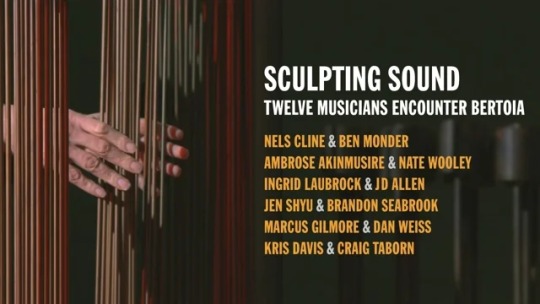
View On WordPress
#Ambrose Akinmusire#Ben Monder#Brandon Seabrook#Craig Taborn#Daisy Avalos#Dan Weiss#David Breskin#Frank Heath#Harry Bertoia#Ingrid Laubrock#JD Allen#Jen Shyu#Kris Davis#Marcus Gilmore#Nate Wooley#Nels Cline#Pyroclastic Records#Quin Mathews#Ron Saint Germain
0 notes
Text
2023-07-21 Hedvig Mollestad Trio - Romsdalsmuséet, Moldejazz

View On WordPress
1 note
·
View note
Text
Julian Lage: A Contemporary Virtuoso Redefining the Language of Jazz Guitar
Introduction:
In the vast landscape of contemporary jazz, where innovation and tradition intersect, Julian Lage stands as a beacon of virtuosity and musical curiosity. Born thirty-six years ago today on December 25, 1987, in Santa Rosa, California, Lage has carved a unique niche for himself in the world of jazz guitar, captivating audiences with his astonishing technique, deep musicality, and a…
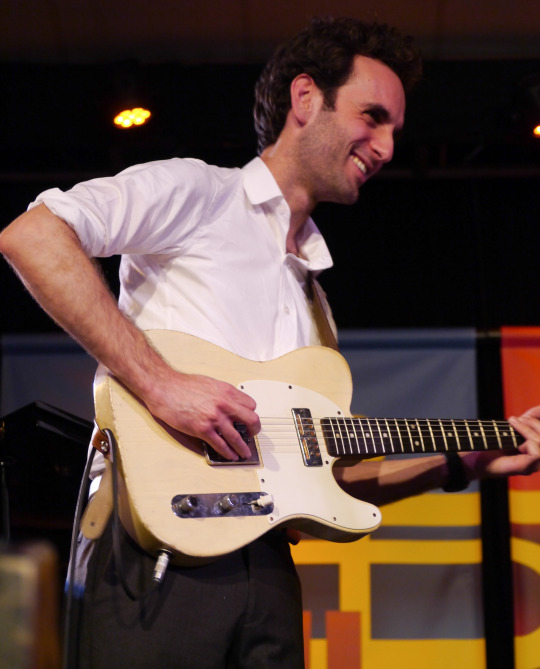
View On WordPress
#Chris Eldridge#Gyan Riley#Jazz Guitarists#Jazz History#Jules at Eight#Julian Lage#Love Hurts#Mount Royal#Nels Cline#Sounding Point
1 note
·
View note
Text
youtube
Wilco - Evicted
#wilco#evicted#jeff tweedy#john stirratt#glenn kotche#nels cline#mikael jorgensen#pat sansone#cosmic american music#cousin#2023#Youtube
1 note
·
View note